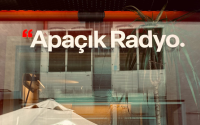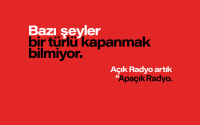Inter Press Service News AgencyThe 2007 Goldman Prize recipients include a farmer jailed for opposing Shell Oil's natural gas pipeline in Ireland and an Icelandic entrepreneur who brokered innovative fishing rights buyouts to help save North Atlantic wild salmon. "This year's prize recipients have succeeded in combating some of the most important environmental challenges we face today," said the award's founder Richard N. Goldman. "Their commitment in the face of great personal risk inspires us all to think more critically about what ordinary people can do to make a difference." The winners, who were chosen from the world's major geographical regions, include activists from Canada, Zambia, Mongolia and Peru. Each will receive 125,000 dollars. Winner Willie Corduff of Rossport, Ireland, along with fellow local residents, forced Shell Oil to halt construction on an illegally-approved pipeline through their land. Corduff prevented the pipeline from being constructed on grounds that the Irish government violated federal environmental and development laws requiring local participation and review. The pipeline would have jeopardised the delicate bog ecosystem, threatening both the safety of the local community and the farmers' way of life, says the Goldman Prize. Both Hammerskjoeld Simwinga of Zambia and Orri Vigfússon of Iceland received Goldman prizes based on their efforts to preserve native wildlife populations. Simwinga created a sustainable community development programme that restored wildlife and transformed his poverty stricken region of the North Luangwa Valley where illegal wildlife poaching had decimated elephant populations. The North Luangwa Wildlife Conservation and Community Development Programme (NLWCCDP), which Simwinga founded, works to preserve the North Luangwa National Park's biodiversity while improving village life in the region through micro-lending, education, rural health programmes and women's empowerment. Vigfússon helped bring an end to destructive commercial fishing in the North Atlantic by brokering a huge international fishing rights buyout, in which his organisation bought the fishing rights from commercial interests on both sides of the Atlantic. The Iceland-based North Atlantic Salmon Fund (NASF), Vigfússon's organisation, has raised over 35 million dollars to purchase the fishing rights from commercial fishers across the North Atlantic since 1989, leading to a 75-percent drop in Atlantic commercial open-sea fishing over the past 15 years. Sophia Rabliauskas of Canada, Tsetsegee Munkhbayar of Mongolia, and Julio Cusurichi Palacios of Peru all received Goldman prizes for their fights against extractive industries. Rabliauskas worked on behalf of the Poplar River First Nation to secure interim protection for a portion of the boreal forest of Manitoba threatened by massive planned logging operations and hydro-power projects. Ts. Munkhbayar worked with the Mongolian government and grassroots organisations to end destructive mining operations along Mongolia's waterways. The unregulated gold mining along Mongolia's limited rivers and tributaries was particularly harmful due to outdated technology and lack of law enforcement. "The health of Asia's environment is fundamental to the health of all its citizens," said Doug Bereuter, president of The Asia Foundation. "As a grantee, Mr. Munkhbayar epitomises our long-standing commitment to empowering people and organisations on the grassroots level to creating a healthful, prosperous Asia." Julio Cusurichi Palacios worked to preserve the Peruvian Amazon rain forest, and the way of life of indigenous groups who live there, by limiting the illegal logging, driven by demand for old-growth mahogany which has led to violent clashed between indigenous groups and loggers. Serving as an advisor with Federation of Natives of the Madre de Dios River and its Tributaries (FENAMAD), Palacios has withstood death threats and false public attacks on his character in order to combat illegal logging and mining entities. "It is my responsibility to defend the rights of indigenous peoples, especially those in voluntary isolation who have no voice, and are the most vulnerable people on the planet. I need to inform the politicians who are making decisions that affect the indigenous peoples, nationally and internationally, and propose viable alternatives," said Palacios. The Goldman Environmental Prize was established in 1990 by San Francisco civic leader and philanthropist Richard N. Goldman and his late wife, Rhoda H. Goldman. It has been awarded to 119 people from 70 countries.

Canlı Yayın
-
Canlı Yayın'a Geri Dön





